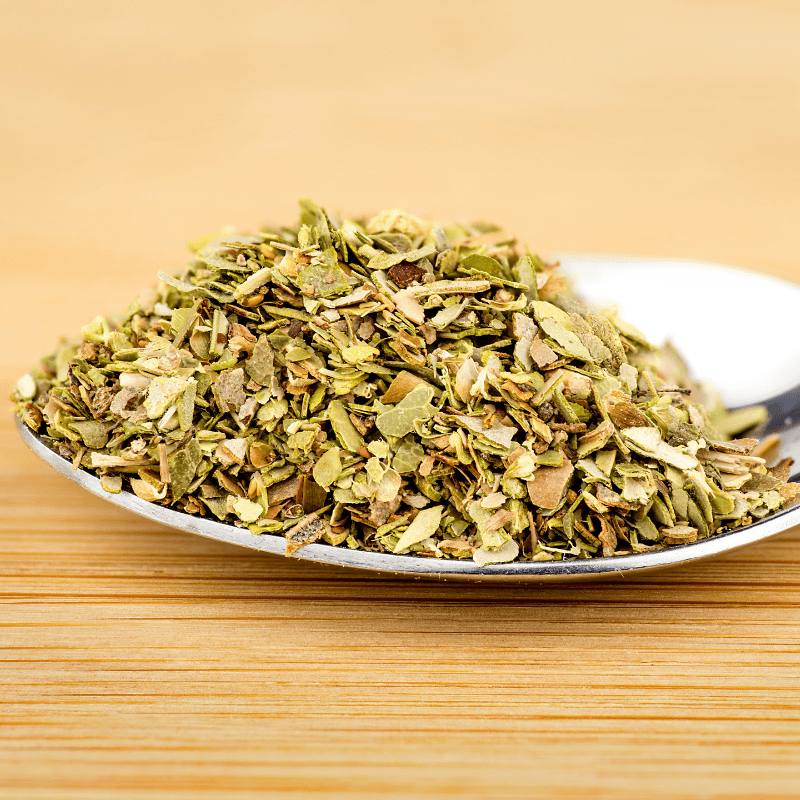Putting basil in your dog’s food can be a great way to add extra flavour, especially if you feel like your dog could use some variety.
This article will explore the benefits of adding basil to your dog’s diet and discussing the possible risks. Sweet Basil is the most common basil which I will go through. However, there are other rarer varieties which include lemon, cinnamon and Thai.
Yes, basil is safe for dogs to consume in moderation. Basil will make your dog’s dish taste amazing, and it’ll even provide some health benefits because it contains natural antioxidants, which can help with digestion, reduce inflammation, and stimulate the immune system.
Now, we know that it is safe for dogs, basil the herb, is a great way to add flavour and colour to your dog’s dish with its aromatic taste and potent aroma—however, not all dogs like basil.
Sweet Basil
Basil is a member of the mint family and is a popular plant that commonly grows in Mediterranean climates. Basil produces small, white flowers and green leaves with purple stems on top of the stalk, which have herbaceous characteristics.

It has been said to be one of Italy’s favourite flavours. Still, it originates from India and South-East Asia and Egypt during ancient times, thanks to its significance in medicinal practices.
Basil is a medicinal plant that has been used for centuries to relieve stomach problems. It contains many chemicals such as eugenol, carvacrol, and thymol which are known, bactericidal agents.
Nutritional Ingredients
- Calcium
- Cobalamin
- Iron
- Magnesium
- Vitamin B-6
- Vitamin C
- Vitamin D
Benefits
- Alleviate anxiety
- Anti-inflammatory
- Ease joint pain
- Gut protecting
- Improves mood
- Protect against infections
Great For
- Appetite stimulant
- Arthritis
- Constipation
- Diarrhoea
- Intestinal gas
Why is basil so good?
Basil contains many chemicals that are known to kill bacteria and fungi within the gut. Its know to reduce stomach problem symptoms of the gastrointestinal tract.
Risks
Too much of anything, even if it’s a good thing, can pose a risk. Overeating basil can cause stomach upset and vomiting – which is not what any pet parent wants to see when they feed their furry friend! Ensure you provide your dog with only small amounts of basil at anyone time.
Serving Suggestions
Depending on the size and weight of your dog, usually, one or two leaves is enough to reap the benefits of the herb. You can add basil to your dog’s meal or even giving to your dog on its own.
Fresh is always best. However, it is slightly more potent than dried basil, so perhaps a few turns of dried basil will be less affluent for your dog.
Ensure that the dried basil is not mixed with any other ingredients, like salt or garlic, as both of these ingredients are highly toxic to dogs.


| Type | Amount | How Often |
|---|---|---|
| Fresh Basil | 1 leaf for small dogs, 2 leaves for large dogs | Twice a week |
| Dried Basil | Pinch for small dogs and a teaspoon for large dogs | Twice a week |
Please beware that there are some potential risks associated with overindulgence that we should keep in mind: too many leaves might lead to nausea and vomiting, so don’t give them more than one or two leaves per mealtime unless instructed otherwise by your veterinarian.
First Time Providing Basil To Your Dog Advice
When giving your dog any new foods, always have a watchful eye on them afterwards, and checking with your veterinarian first is always a good thing to do. Keep in mind that good quality dog food should always have the nutrients that a dog needs.
Do all dogs like basil?
Not all dogs like basil. It’s certainly an acquired taste, and the larger dogs are more inclined to have a nibble, whereas the small dogs are often much fussier in general when trying new foods.
Other Varieties of Basil
As I mentioned earlier, the most common herb variety is sweet basil which is safe for dogs. Sweet basil is sold mainly in shops and markets over the other types. However, there are also lemon basil, cinnamon basil and Thai basil.
Can dogs eat lemon basil?
Yes, lemon basil is safe for dogs to consume in moderation. Lemon basil can bring extra flavours to your dog’s diet and provide some health benefits to your dog.
Can dogs eat cinnamon basil?
Yes, cinnamon basil is safe for dogs to consume in moderation. Basil will make your dog’s dish taste amazing, and it’ll even provide some health benefits.
Can dogs eat Thai basil?
Yes, Thai basil is safe for dogs to consume in moderation. Basil will make your dog’s dish taste flavoursome, and it’ll even provide some health benefits, such as an anti-inflammatory, easing of joint pain dogs and protection against infections.
Recap
Basil is safe for dogs and is not poisonous or toxic to them. Whenever feeding your dog basil for the first time, you should consult with a veterinarian and have a watchful eye on your dog. Only ever provide them basil in the recommended amounts, as overindulging in basil like any food can cause stomach upset and vomiting. Remember, a well-balanced diet is essential for all animals, including dogs. If you follow all the best practices when offering basil, your dog will reap the rewards of this magical herb.
Happy herb munching!
